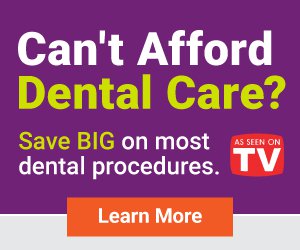Deteriorating Teeth With Old Age
Aging is an inevitable part of life. Decades of eating, drinking, and talking certainly take a toll on your teeth. Deteriorating teeth is a common sign of aging. Taking care of your dental health and preventing tooth decay is crucial to keep the teeth you were born with. Learn about the risks of aging on your dental health and what you can do to keep your teeth in tip-top shape.
You Don’t Have to Lose Your Teeth
Old age used to mean dentures and veneers. People over the age of fifty didn’t usually keep their own teeth. Due to their oral hygiene, the effects of aging, and not visiting the dentist, they lost several or all of their teeth.
But, that doesn’t have to happen to you. If you understand the effects of aging on your teeth, and you actively try to prevent and treat dental issues, you have every chance to keep your own teeth throughout your life.
The 5 Biggest Dental Problems For People Over 50
Wrinkles aren’t the only sign of aging. Deteriorating teeth are just as telling about a person’s age. And we’re not just talking about missing teeth. Here are the most common signs of aging on your teeth and dental health.
1. Dry Mouth Is a Common Side Effect of Medication
Saliva actually helps clean teeth regularly. When you lack the necessary amount of saliva, you have dry mouth. And this can be harmful to your teeth. One reason dry mouth is more common in older age is because it is a side effect of many medications, and taking medication is more common among older age groups.
A dry mouth doesn't necessarily mean you are thirsty all of the time. A common symptom of this condition is bad breath, and a sticky feeling in your mouth. You may also have difficulty swallowing.
Luckily, dry mouth is an easy symptom to fix. Make sure you drink more water than usual. Chewing on sugar free gum can also help. If you still have dry mouth, a dentist can recommend a more effective treatment.
2. Gingivitis Can Turn Into a Serious Disease
If your gums are red, swollen, and bleed easily, gingivitis is probably the culprit. Gingivitis left untreated can turn into gum disease, which can lead to even more problems. You could lose your teeth due to more infection. But, you’d be lucky if your deteriorating teeth only stop there.
Untreated gum disease can lead to heart disease and even strokes. Luckily, it’s an easily preventable condition. All you need to do is have regular dental visits and dental care.
3. Tooth Decay Is the Most Common Sign of Deteriorating Teeth
One of the biggest signs of deteriorating teeth is tooth decay. The cause of this condition lies in poor dental hygiene.
When you don’t brush your teeth and floss regularly, bacteria eats away at your teeth. Cavities can form, which may be painful. These cavities are often near old fillings or hard-to-reach spaces.
The deterioration of your teeth doesn’t stop at cavities though. The decay can continue to your gums, which can lead to early-stage gum disease. And you know that untreated gum disease could result in life-threatening conditions.
Although your deteriorating teeth can be a great concern as you age, you can easily prevent it. Regular dental visits and possibly a boost in fluoride will help prevent tooth decay.
4. Make Sure Your Dentist Checks For Signs of Oral Cancer
The chance of having oral cancer rises with age. Smokers and heavy drinkers are even more at-risk of this illness. The best way to treat oral cancer is to receive a diagnosis early on. And the best person to diagnose it is your dentist.
Make sure your dentist checks for possible signs of oral cancer at your oral examination. This is just another reason regular dentist visits are crucial as you age.
5. Overcrowding Teeth Are a Common Problem for People Over 50
Your teeth shift with age. You may not even notice that they gradually overcrowd each other over time. The problem with overcrowded teeth isn’t necessarily aesthetic. The issue comes from the bacteria and food particles that get stuck in overcrowded teeth.
As flossing becomes more and more difficult, aging people abandon their oral hygiene. That’s when cavities, tooth decay, and gum disease develop. This means that overcrowded teeth are a big culprit for deteriorating teeth.
Luckily, not all hope is lost if you have overcrowded teeth above the age of 50. An orthodontist can sometimes fix the overcrowding with a retainer. But, you definitely need to commit to more frequent professional dental cleanings. These procedures can effectively clean your teeth and prevent poor dental hygiene from affecting your health.
Why Taking Care of Your Teeth Is Important
You may think that with today’s dental technology, you don’t have to worry about losing your teeth. You can always get implants, dentures, and veneers, right? Well, dental health is a little bit more complex than that. You need to take care of your aging mouth because you eat and talk with it.
If you take care of your deteriorating teeth, you can:
- Avoid pain: Cavities and gum disease aren’t just dangerous. They’re also very painful. Seeing how easy it is to prevent them, it’s much easier to avoid the pain in the first place.
- Keep your costs low: Fillings, root canals, and dentures all cost money. The cheapest way to take care of your teeth is to try to keep as many of the original ones in your mouth as possible.
- Prevent serious illnesses: Untreated gum disease can lead to heart problems and strokes. These are life-threatening illnesses. Taking care of your oral health means taking care of your general health as well.
How to Care for Your Deteriorating Teeth as You Age
If you’re over the age of 50, you need to pay special attention to your teeth. If you’re determined to keep as many of your teeth as possible, these 4 simple steps can go a long way in treating deteriorating teeth.
Keep Up With Your Oral Hygiene
You need to brush your teeth, floss, and clean your tongue at least twice a day, every day. Your regular oral hygiene routine can even include mouthwash if you’re so inclined.
If you’ve never brushed your teeth regularly, it’s never too late to start. Pick up this healthy habit, and you’ll see a quick improvement in the health of your teeth and gums.
Monitor Your Symptoms
As you age, you need to listen to your body. If you feel pain, or notice that something’s different about your oral health, speak to a dentist as soon as you can.
The discoloration of your teeth, gums, and tongue can be a sign of a serious illness. And a sharp pain or sensitivity in your teeth can be a cavity you didn’t know about. Talk to your doctor about your symptoms, even if they don’t seem related.
Get Regular Dental Cleanings
Usually, you should get two professional dental cleanings a year. But, as you age, your dentist may recommend you more. Cleaning your overcrowded teeth and the parts of your mouth you can’t reach is crucial to sufficient oral health.
Visit the Dentist for Oral Exams
Even if you don’t feel any pain, you should still visit a dentist for a regular checkup. A trained professional can notice if something’s wrong before you can. When it comes to deteriorating teeth, safe is definitely better than sorry.
Save Money on the Dentist with Your Deteriorating Teeth
Without a doubt, the best person to examine and treat your deteriorating teeth is the dentist. And as you age, this becomes even more crucial. If you don’t visit a professional, you risk further deterioration, losing your teeth, and even death.
A lot of people avoid going to routine oral exams because of the cost. Luckily, with a Carefree Dental Card, you won’t have to choose between your wallet and your dental health.
Our dental discount plan can unlock huge savings at participating dentists. How much? Members can save 15% - 50%* per visit in most instances at participating dentists. That’s huge!
Ready to save big on your next oral examination for deteriorating teeth? Sign up for a Carefree Dental Card today!
The Carefree Dental blog is not meant to be a substitute for professional medical advice, diagnosis, or treatment. The text and pictures within the content are intended for information purposes only. Readers should consult with a licensed dentist or healthcare professional before seeking treatment.
The Carefree Dental Card is not insurance and Carefree Dental is not an insurance provider.





